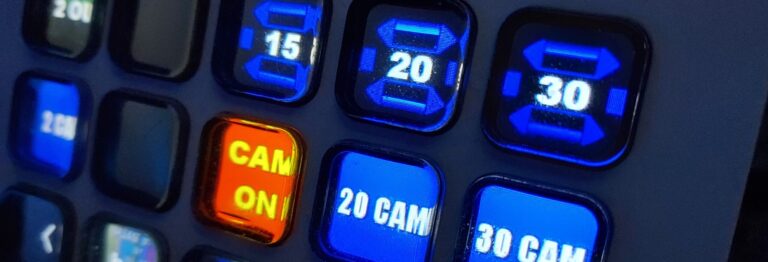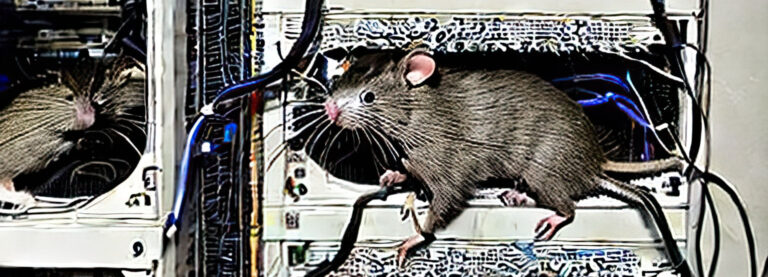Preface: This item was largely written in June 2001, a relatively innocent time when the phrase “the worst act of terrorism on American soil” conjured up images of Oklahoma City instead of lower Manhattan. I had planned on running it late last year, and then sat on it for fear that it had suddenly become wildly irrelevant. But with reports of hate crimes, vandalisms of mosques, and other knee-jerk reactions to the September 11th attacks and the subsequent scares, I have gradually come to the realization that, even if it’s running half a year late, this piece still needs to run.
Desperately.
It’s a scary thing, sometimes, working in news. For, as hard as everyone tries to avoid letting opinions seep into their writing or editing, something always gets through.
And sometimes there’s the even scarier stuff, left on the metaphorical cutting room floor, voiced in the newsroom but not on the set with a live microphone.
I hauled my butt out of bed at an obscenely early hour on the morning of Monday, June 11th, 2001, since I needed to be at work before 7:00am to update the station’s web site with any local video or stories related to the execution of Timothy McVeigh. Normally, I get to work somewhere in the neighborhood of 10:00am and work until six or seven at night, so I arrived in the midst of the morning show – and a number of faces I don’t normally get to see.
One of these faces was completely new to me, a woman I had never met before, who is usually gone by the time I arrive. I won’t identify her further except to say she’s not one of our on-air talent – fortunately.
A few minutes before 7:00am central time, McVeigh’s scheduled execution time, this co-worker of mine began to talk back to the TV. “Enough of this!” she said repeatedly to ABC’s network anchors (and anyone in the newsroom who happened to be listening). “It’s time for him to die!”
Over the next several minutes, basically non-stop until a prison spokesman in Terre Haute, Indiana took the podium and announced McVeigh’s death, this co-worked increasingly creeped me out by proclaiming that it was “time for him to die,” and how much she wished public executions would come back so everyone could see it, and how older styles of the death penalty would make more of a spectacle than an injection if the public could witness the event.
I know she’s not the only one saying these things.
I know she’s not the only one feeling these things.
But it still bugs the hell out of me. And here’s why.
Among the few things that separates us from the rest of the animal kingdom is our use of utensils. Another dividing line is our ability to overcome most instincts – well, okay, some – in favor of reason. When Timothy McVeigh pulled a rental truck up to the federal building in Oklahoma City, was he acting on instinct? Hell no. He was operating under a very carefully orchestrated plan. He chose to do it.
Even when someone like him kills 168 people, we are still in control of our reactions. It’s natural to be shocked and angry. But beyond that, you’re in the driver’s seat. You decide how to use that anger.
You could reflect on why it makes you angry, and take a long, hard look at the big picture. Or you can let the anger steer you – possibly long enough to make you do something like, oh, say, bombing a building loaded with people.
I understand why survivors, and friends and families of the deceased, would want to watch a closed-circuit TV feed of McVeigh’s execution. I’m not saying that, were I in there position, I’d join them. But I can see where, for some people, it would bring closure. After all, it’s not like they’re giving the injection themselves.
Which brings me back to my anonymous co-worker, urging a man to die. It really disturbed me on many levels – someone who seemed to have the same urge to destroy someone’s life that McVeigh himself must have held when he parked that truck and took off running. But she’s okay, right? ‘Cause she’s one of the good guys, since she’s rooting for the demise of the bad guys.
And if you believe that, you’re evidently color-blind to every shade of grey that exists between zero black and 100%, 255 x 255 x 255 white.
It’s that very intent to see harm come to someone that led McVeigh himself to blow up the building in the first place. Sure, he later said he was sorry he killed children in that attack, but one doesn’t set out to destroy an entire building without wishing to do someone harm.
And it’s that same urge to do harm that bothered me so much in this case.
If you’re called to serve on a jury, that’s when you’re called upon to pass judgement on someone. Until that time comes, you might want to think about this: thou shalt not kill, right? Of course not. Most of us know that.
But what do you do about the impulse? While not as bad as acting on it, do we not need to deal a little more constructively with it? Effect positive change, rather than allow it to eat away at us? I’m not advocating the thought police idea here, either: this is something that individuals must learn to do. Anytime a violent thought crosses my mind, an impulse to commit any sort of violence, I feel sharp remorse afterward. And maybe if more of us had a comparable reaction, we wouldn’t need to worry about who gets to watch the closed-circuit execution – or worry more about the self-appointed armchair quarterbacks of justice who cheer the reaper on from the sidelines.
Just keep in mind, next time that the impulse hits you to declare the death penalty in your head, that it’s thanks to someone appointing himself judge, jury and executioner that 169 people are already dead.










+ There are no comments
Add yours